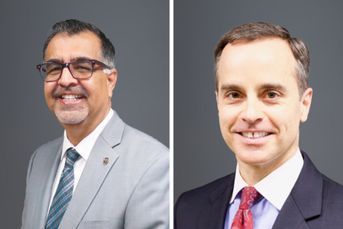Disabled vets are falling through cracks of workplace plans

New research exposes financial vulnerability among vets with disabilities, with most wanting support on group retirement plans and HSAs.
A study co-conducted by Voya with Easterseals, a disability and community service provider, shines a sobering spotlight on a critical support gap that disabled veterans experience in the workplace.
The new study draws from a national survey to highlight the unique challenges faced by disabled veterans during their transition from military to civilian employment.
The research, which looked at veterans with and without disabilities, their caregivers, and employers, revealed a rampant feeling of financial vulnerability among disabled veterans.
While 60 percent of all veterans surveyed reported an easy transition from military service, only 37 percent of those with disabilities said the same. Furthermore, just over half of the disabled veterans (51 percent) felt confident in their ability to manage daily expenses, and few felt equipped to carry the financial weight of retirement.
“Employers are increasingly recruiting veterans for their leadership, adaptability, and teamwork,” Jessica Tuman, head of the Voya Cares Center of Excellence at Voya Financial, said in a statement. “However, there’s a lack of awareness that over a third of veterans nationwide have disabilities, and their workplace needs are distinct.”
Exploring the types of support disabled veterans want most, a significant majority indicated a desire for assistance in maximizing benefits available through both employers and the Department of Veterans Affairs.
Two-thirds (66 percent) said they want guidance on maximizing their VA and work benefits, including retirement plans and health savings accounts. Three-fifths (61 percent) want group emergency savings funded through payroll deductions, and 57 percent want financial planning assistance that’s geared toward their unique needs for retirement income, including future health costs.
The survey also touched on the severe challenges faced by caregivers to disabled vets. With an estimated 6.5 million adults providing unpaid care for veterans with disabilities – and paying $14 billion yearly out of their own pockets in the process – 86 percent of care providers in the survey said it’s taken a toll on their work or education.
“The transition from military service to civilian life can present complexities and difficulties, particularly for those who have service-connected disabilities,” said Kendra Davenport, president and CEO of Easterseals.
“Caregivers provide critical support to our veterans, and they also experience some of the same career challenges and financial insecurity that veterans face,” Davenport said.
AI ‘super-cycle’ will power Dow above 100K in 10 years, says Main Street Research CIO
Learn more about reprints and licensing for this article.








